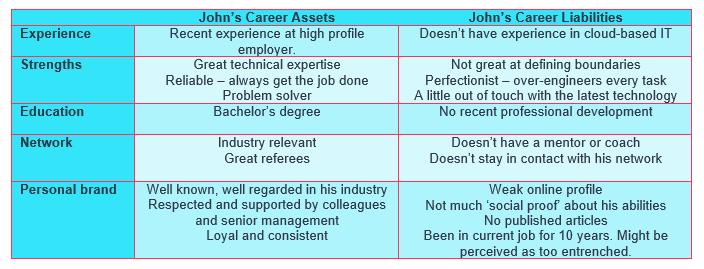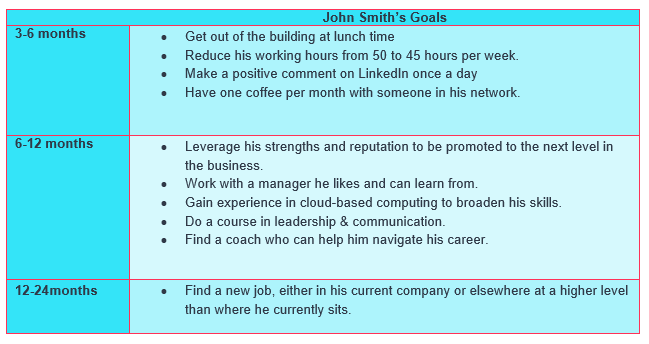Does your career feel more repetitive and boring than a Mariah Carey Christmas carol on high rotation? If so, it’s time to do an end-of-year career stock take.
Your career is a gift so it’s worth unwrapping. At the very least, you have a job that pays your bills and at most, you have a career gives you purpose, sustains your passions and gives you an nice life. If you feel disappointed when you unwrap your career, don’t worry, you might not be stuck but a review will give you the clarity to make 2019 more exciting, rewarding and happier. It’s time to take stock, assess where you are now, where you want to be in 2019 and make a plan for how you’re going to get there. Now is the best time to do that, especially if you are taking holidays. As you rest and recover from yet another hectic year you are able to let new ideas and possible opportunities float to the top of your uncluttered mind.
Take Stock of Where You Are Now in Your Career
Like a physical stock-take, a career stock-take requires a count of your assets and liabilities and an assessment of your current role. To make an objective assessment, I recommend you do your stock take in writing.
For illustration purposes, I’ve created a fictional professional named John Smith. John is a 45 year-old IT executive for a bank. He’s been in his current role for 10 years.
You can use the table and headings I prepared for John below as a guide for your own stock take. Often there is great value in sharing your completed stock-take with people such as mentors, a coach or a colleague as you will gain extra information from an external point-of-view.
John’s Career Stock Take
Having completed his career stock take, John is building a good understanding of his current situation. His next step is to review his job.
Assess Your Current Job
To gain a complete picture of where you are now, consider what you like and don’t like about your current job. Changing jobs or employer is only one option, sometimes you can make some adjustments and find career fulfilment by staying where you are.
Of course, there are tangible ways to measure your job like pay, vicinity to home, travel opportunities, etc but what about the intangibles? These are things like, are you pre-occupied with negative thoughts about your job at the weekend? Are you filled with dread about going to your workplace or do you bounce out of bed on Monday morning with a curious and excited mind? Does your job allow you to use your strengths? Are there opportunities for personal and professional growth?
John Smith’s Job Assessment
Looking at John’s assessment above, he works for a company that has good potential but the long hours, poor relationship with his manager and feeling like a prisoner during business hours means he’s unhappy.
By completing these two simple exercises, John has a more thorough understanding of his current position. Already John can see some of the things that he can improve or change to make his job more enjoyable.
Where are you going?
Now that John’s taken stock of his current position, it’s time to look at his career goals. He doesn’t have a clearly defined five-year plan to become CEO so John decides to start small and consider:
- What does he want to achieve in the next 3-6 months?
- What does he want to achieve by the end of 2019?
- What’s his big picture goal beyond next year?
As with all goals, John uses the SMARTA approach:
- Specific
- Measurable
- Achievable
- Realistic
- Trackable
- Action-oriented
Having identified his career assets and liabilities and what he does and doesn’t like about his current job, he finds it easier to write meaningful goals.
Again, you can use John’s approach to set your own career goals. Don’t worry if you don’t have a clear vision for the future, start with the next 3-6 months and take it from there.
How are you going to get there?
Now that John’s done his stock take and written his career goals, he needs an implementation plan. He also needs to make sure he executes his plan because he doesn’t want to be in the same situation next Christmas!
Let’s look at John’s first goal above. To reduce working hours from 50 hours a week to 45 hours, John will have to cut back one hour a day. How can he do this?
Options include:
- work more efficiently during the day
- delegate tasks to others in the team
- be happy with a good standard of work without striving for perfection
Because he did his stock take and examined his strengths and weaknesses, John knows he has a tendency towards perfection. The cost of John’s perfectionism is that he spends too many hours at work, and it leaves him feeling exhausted. To fix this problem, John needs to reflect on why he is a perfectionist. Why is a good professional standard of work not enough? By addressing this issue, John will be able to reduce his working hours.
But John knows that changing old habits developed over a life-time of work isn’t easy.
Don’t Get Stuck, Get Help
If you feel stuck in a rut, ask for help. You can start by asking family and friends but, despite their best intentions, most are not qualified to give career advice. A career coach is a trained professional who can help you do a thorough and objective stock take of your career, identify realistic goals and put a career development plan in place.
Beyond being an independent sounding board, career coaches use analytical tools, like The Harrison Assessment Career Guide , to map your strengths and identify your career possibilities.
The end of a working year is a great time to reflect on your career. If you’re not happy in your current job, don’t worry, you’re not stuck. Writing down a plan is a good way to see how you can move forward. But making changes can be difficult, and that is where I can support you. Book a career breakthrough session today and let’s talk about how to make 2019 your best career year yet.










